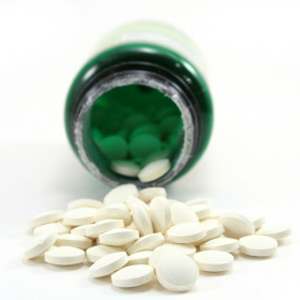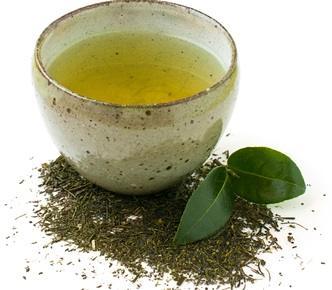CLA Safflower Oil: Health Benefits
CLA Safflower Oil is a dietary supplement that contains conjugated linoleic acid (CLA). Linoleic acid belongs to the omega class of fatty acids, which influence vital functions in the body and are necessary for optimal health. CLA is naturally occurring in dairy products and certain meats but it is difficult to get the health benefits of CLA through diet alone. Fish oils, vegetable oils, and sunflower oils are also common CLA sources. CLA is commonly made specifically from safflower oil. It contains pure and higher rates of CLA than other types of oils, up to 82% CLA vs 32% of other types.
 CLA is involved in the regulation of fat by the body. The benefit of taking CLA is twofold: it assists in the metabolism of stored fat while also preventing the metabolism from slowing down while dieting. According to Cornell University and the National Academy of Sciences, an animal study indicates cancer preventing tendencies as it increases the body’s ability to better absorb such vitamins as D and A also. Commonly used by athletes and bodybuilders in training, CLA is not restricted to professional athletes but can be used in conjunction with a healthy diet and exercise program to promote weight loss for anyone. CLA can have benefits without exercise.
CLA is involved in the regulation of fat by the body. The benefit of taking CLA is twofold: it assists in the metabolism of stored fat while also preventing the metabolism from slowing down while dieting. According to Cornell University and the National Academy of Sciences, an animal study indicates cancer preventing tendencies as it increases the body’s ability to better absorb such vitamins as D and A also. Commonly used by athletes and bodybuilders in training, CLA is not restricted to professional athletes but can be used in conjunction with a healthy diet and exercise program to promote weight loss for anyone. CLA can have benefits without exercise.
CLA prevents fat from being deposited into the cells by speeding up the body’s fat metabolism. CLA also helps the body metabolize existing fat deposits. This fat then returns to the bloodstream where it is used as energy by muscle cells and the liver. Research shows CLA may now play an important role in helping reduce the incidence of breast cancer, helping improve asthma and allergy control, help control blood sugar levels (diabetes), and may help limit the extent of atherosclerosis which can lead to heart disease.
Benefits of CLA
- Made with 100% brand CLA Safflower Oil, the purest and most absorbable variety of conjugated linoleic acid available
- Weight loss, fat burn boost & build lean muscle mass
- Increased energy as fat is converted to energy
- Clinical studies over the years have shown there to be no adverse reactions or side effects of CLA when taken at its recommended dose.
- All natural, commonly made from safflower oil, CLA does not contain any natural or artificial stimulants
- Heart Disease Prevention due to the reduced amount of stored fat by the body. CLA reduces the deposit of plaque and lipids in the arteries, according to the Pennington Biomedical Research Center.
When CLA is used in conjunction with a balanced healthy diet and regular exercise program, it can help maintain healthy body weight.
Are There Any CLA Safflower Oil Side Effects?
The benefits of CLA definitely outweigh the possible side effects. However, as with any supplement, it is important to consult your doctor, pharmacist, and other health care providers about any dietary supplements and medicines you take. Their expertise and knowledge will be able to assist you concerning any interactions with prescription and/or over the counter medications you may be taking as well as prevent you from taking any supplement that may not suit your body.
Educate Yourself By Reading CLA Safflower Oil Reviews
There is an abundance of information available online about CLA, CLA SAfflower Oil and the many health benefits it provides so reading CLA Safflower Oil reviews can really help understand which products can really get you good results. CLA Safflower Oil is primarily associated with boosting weight loss efforts and there are many reviews online that can help you better understand which supplements are worth investing in to get the very best results possible.

 Subscribe Now
Subscribe Now


 Sprinting burns a great deal of calories in a short time. Professor James Timmons from the Heriot-Watt University in Edinburgh reports that sprinting “can boost the body’s metabolism sharply, helping to prevent weight gain and diabetes.” Sprinting not only burns calories during its duration, but greatly improves overall metabolism, allowing you to burn more calories even when not sprinting.
Sprinting burns a great deal of calories in a short time. Professor James Timmons from the Heriot-Watt University in Edinburgh reports that sprinting “can boost the body’s metabolism sharply, helping to prevent weight gain and diabetes.” Sprinting not only burns calories during its duration, but greatly improves overall metabolism, allowing you to burn more calories even when not sprinting.
 An endomorph is an individual who has “a heavy rounded body build often with a marked tendency to become fat”. In bodybuilding lingo – an endomorph is a person whose bulking period is marked by a large amount of fat gain in addition to muscle gain, and whose cutting period is marked by a long and difficult attempt at fat loss. Four days of weight training throughout the week will ensure that the afterburn increased metabolic response from each training session will spill over into all rest days. One or two cardio days should also be included throughout the week. However, no matter if an endomorph is bulking or cutting, weight training should be the main focus. An increased amount of muscle mass will increase their base metabolic rate, thereby decreasing the chance of storing/holding onto fat cells.
An endomorph is an individual who has “a heavy rounded body build often with a marked tendency to become fat”. In bodybuilding lingo – an endomorph is a person whose bulking period is marked by a large amount of fat gain in addition to muscle gain, and whose cutting period is marked by a long and difficult attempt at fat loss. Four days of weight training throughout the week will ensure that the afterburn increased metabolic response from each training session will spill over into all rest days. One or two cardio days should also be included throughout the week. However, no matter if an endomorph is bulking or cutting, weight training should be the main focus. An increased amount of muscle mass will increase their base metabolic rate, thereby decreasing the chance of storing/holding onto fat cells. An ectomorph has the body type that is most often seen in the pages of fashion magazines. They are slim boned, long limbed, lithe and have very little body fat and little muscle.
An ectomorph has the body type that is most often seen in the pages of fashion magazines. They are slim boned, long limbed, lithe and have very little body fat and little muscle. 

 CLA is definitely a nutrient you want in your diet. Is it a magical cure for obesity? No. Nothing is a magical cure for
CLA is definitely a nutrient you want in your diet. Is it a magical cure for obesity? No. Nothing is a magical cure for 

 The diet supplement conjugated linoleic acid, better known as CLA, has created some excitement in the weight-loss world for its advertised ability to help overweight people shed unwanted pounds. But new studies suggest that CLA may have some previously unknown, unsavory side effects. One needs to be careful and consult a doctor before taking such supplements.
The diet supplement conjugated linoleic acid, better known as CLA, has created some excitement in the weight-loss world for its advertised ability to help overweight people shed unwanted pounds. But new studies suggest that CLA may have some previously unknown, unsavory side effects. One needs to be careful and consult a doctor before taking such supplements.
 Naturally present in dairy and beef, CLA consists of subcomponents called isomers. Different isomers have been isolated in animal research as having various health benefits. For example, the isomer most prevalent in dairy products has potential anti-carcinogenic benefits, while the one most prevalent in pastured beef is potentially effective in the regulation of body fat. Some research suggests other CLA isomers could have other health benefits such as protecting the heart, preventing thickening of arteries, preventing cancer, particularly breast cancer, and helping to regulate the immune system. CLA is not an essential fatty acid, so technically we don’t have to have CLA in our diets in order to be healthy. However, CLA has many potential health benefits which make it a welcome addition to a diet designed to nourish and protect. CLA is unique among foods with possible anti-cancer activity because it is derived from animal products, and seems to be effective in amounts humans typically get from eating food.
Naturally present in dairy and beef, CLA consists of subcomponents called isomers. Different isomers have been isolated in animal research as having various health benefits. For example, the isomer most prevalent in dairy products has potential anti-carcinogenic benefits, while the one most prevalent in pastured beef is potentially effective in the regulation of body fat. Some research suggests other CLA isomers could have other health benefits such as protecting the heart, preventing thickening of arteries, preventing cancer, particularly breast cancer, and helping to regulate the immune system. CLA is not an essential fatty acid, so technically we don’t have to have CLA in our diets in order to be healthy. However, CLA has many potential health benefits which make it a welcome addition to a diet designed to nourish and protect. CLA is unique among foods with possible anti-cancer activity because it is derived from animal products, and seems to be effective in amounts humans typically get from eating food. Individuals get
Individuals get 
 Chromium picolinate is a chemical compound sold as a nutritional supplement to treat type 2 diabetes and promote weight loss.This bright-red coordination compound is derived from chromium (III) and picolinic acid. Small quantities of chromium are needed for glucose utilization by insulin in normal health, but deficiency is extremely rare and has only been observed in hospital patients on long-term defined diets. Chromium has been identified to regulate insulin by increasing the sensitivity of the insulin receptor.
Chromium picolinate is a chemical compound sold as a nutritional supplement to treat type 2 diabetes and promote weight loss.This bright-red coordination compound is derived from chromium (III) and picolinic acid. Small quantities of chromium are needed for glucose utilization by insulin in normal health, but deficiency is extremely rare and has only been observed in hospital patients on long-term defined diets. Chromium has been identified to regulate insulin by increasing the sensitivity of the insulin receptor. Green Tea Extract- Epigallocatechin gallate (EGCG), a compound found in green tea, was shown to increase fat oxidation by 33 percent.This result comes from one of many studies that have looked at green tea’s potential in weight loss. EGCG has been shown to be a key component in many of these studies. There are a number of ways the EGCG could help aid weight loss:
Green Tea Extract- Epigallocatechin gallate (EGCG), a compound found in green tea, was shown to increase fat oxidation by 33 percent.This result comes from one of many studies that have looked at green tea’s potential in weight loss. EGCG has been shown to be a key component in many of these studies. There are a number of ways the EGCG could help aid weight loss:

 Diabetes: There are concerns that taking conjugated linoleic acid can worsen
Diabetes: There are concerns that taking conjugated linoleic acid can worsen 



 Taking a CLA supplement can provide you with
Taking a CLA supplement can provide you with  Can you get enough CLA in your diet to achieve beneficial effects on body composition? Probably not, at least if you eat a healthy diet. CLA is found in small quantities in beef, lamb and dairy products. The concentrations in these foods can vary widely. Usually the higher the fat content, the higher the levels of CLA (e.g., whole milk has more CLA than skim milk). Studies provide evidence for favorable effects of CLA on body composition that are independent of diet and exercise. The effects are relatively small, but arguably of important clinical significance.
Can you get enough CLA in your diet to achieve beneficial effects on body composition? Probably not, at least if you eat a healthy diet. CLA is found in small quantities in beef, lamb and dairy products. The concentrations in these foods can vary widely. Usually the higher the fat content, the higher the levels of CLA (e.g., whole milk has more CLA than skim milk). Studies provide evidence for favorable effects of CLA on body composition that are independent of diet and exercise. The effects are relatively small, but arguably of important clinical significance.